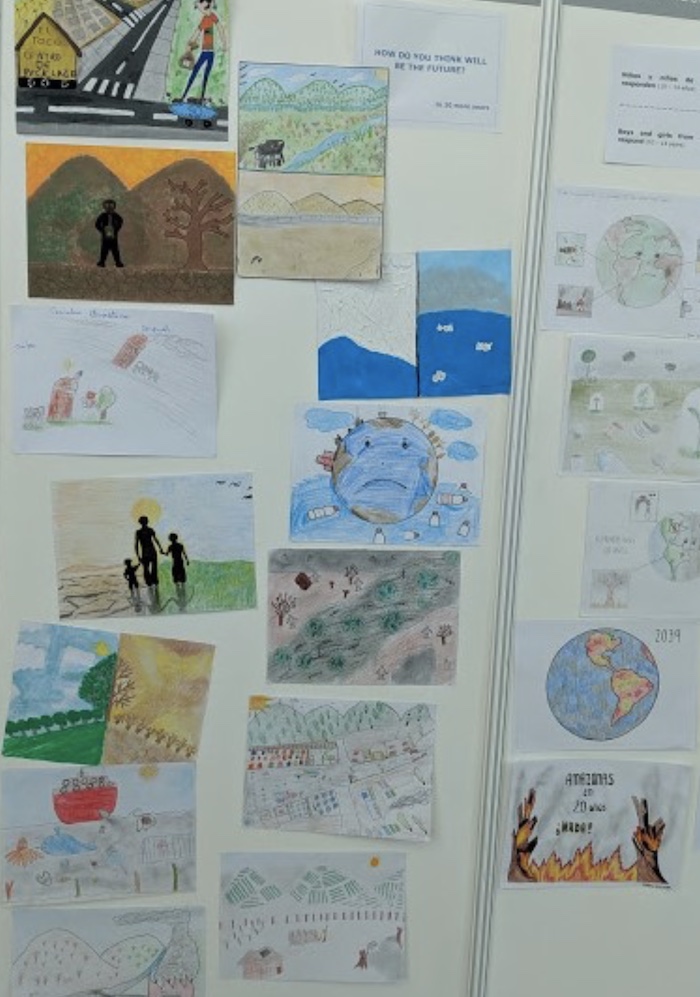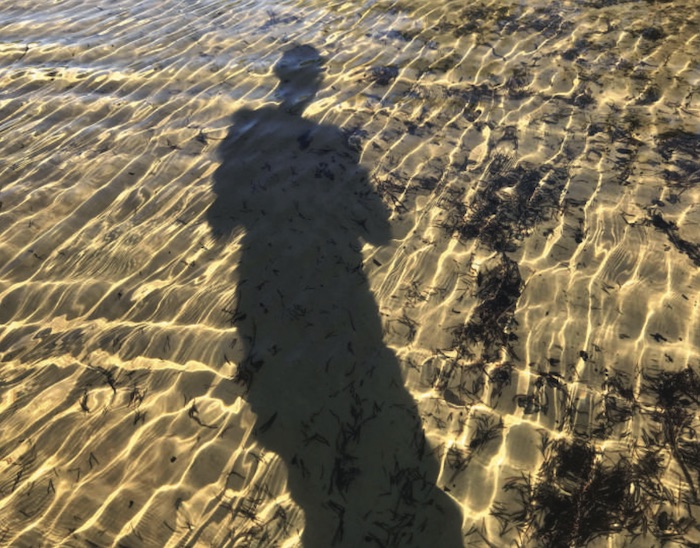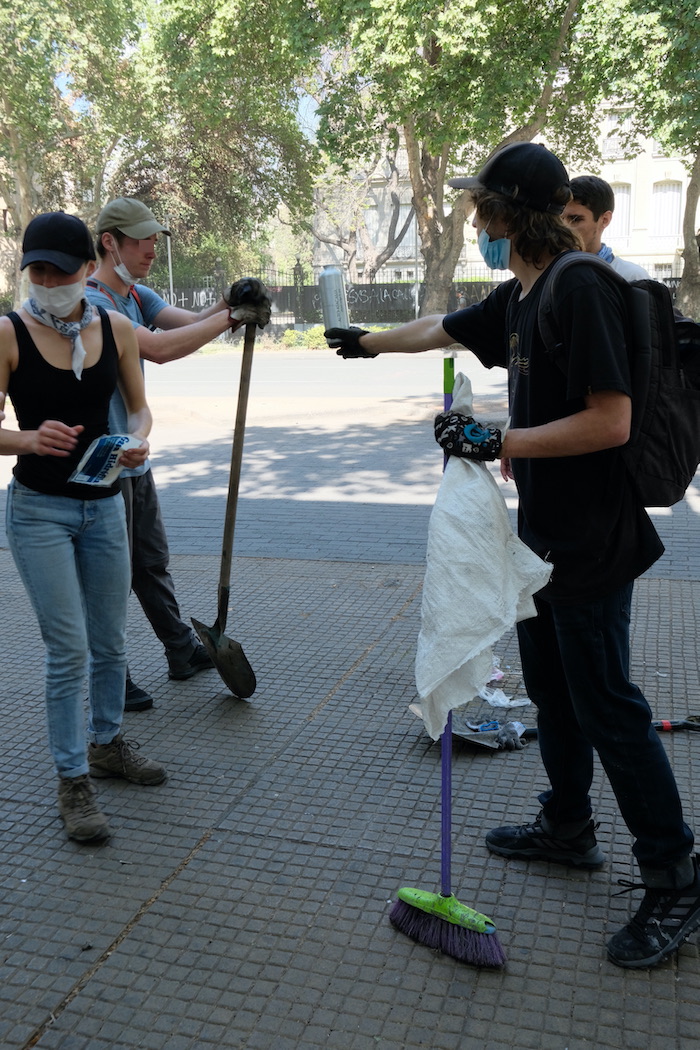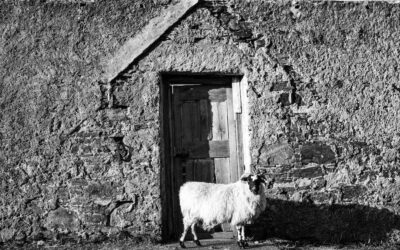Future stories: Chile, climate and conciousness
We were heroes and gods but, when we took off our sets, the real world came rushing— Chris Riedy
It’s a month since Santiago and Chile exploded. The video in the background is 9 November.
Can we help weave this together creating flourishing just lives for all?
Creating stories and our world created by stories
We’re seeing fractures all around the world. Multiple reactions and people crying out for—setting out to create—a better world for all.
Modern-day innovation, politics and society brings benefits. Yet, much pain, inequity and symptoms arising—states of emergency (climate & curfews)—are impossible to fix with modern-day thinking.
What can we do?
The two pieces below address our sticky modern-day stories. They are about shifting sticky, outdated, memes. Today we know better—we’re not separate from the environment. And, we live in a globalized world—what happens in Santiago matters in Sydney and San Francisco.
What does it look like when we start, consciously, authoring our future? First is Sandra Waddock on the what and why of transformation. Second is Chris Riedy from Our Entangled Future.
Transformations2019: A Perspective
by Sandra Waddock
The Transformations2019 conference held in Santiago, Chile, presented a unique opportunity for reflecting on the what and the why of transformation.
The ‘what’, of course, was the focus of the content of the conference. The ‘why’ exploded on the last formal day of the conference when protests broke out throughout Santiago. The protests almost seemed like a metaphor of rationale for the conference itself. Triggered by a fare increase for the Metro, the protests, which sometimes turned violent, highlighted long-term discontent with inequality, living costs, rising debt, and corruption in the country.
Chile’s protests, along with numerous others simultaneously erupting in many parts of the world, both symbolically and in practice underscore the need for transformation. Many citizens are frustrated with the status quo of today’s winner-take-all, competitive rat race, where the rich seem to always win and most people get left behind, and where the natural environment is pillaged in the name of profit and wealth.
Climate change, rising sea levels, melting glaciers, violent weather patterns mirror the unrest about inequality, corruption, high cost of living, and other societal ills that suddenly spilled into public view as the conference wound down. In Santiago and in numerous other cities in Chile and elsewhere in the world, many people were (and are) demanding through public protests that leaders move their societies towards greater equity for all.
The ‘what’ of the conference perhaps can potentially shed a bit of light on the visions for a better world that some conference participants hold. One premise that I and some of my colleagues brought to the conference was the idea that the important stories and narratives that people hold about their world, or what anthropologists call their cultural mythologies, frame the way they see and ultimately act in the world.
The idea is that to begin to transform towards a better world, we all need to shift our framing—our cultural mythologies—to understand the world in a new way. Today’s dominant mythologies tend to be economic, and around individualism, growth at all costs, and purportedly free markets. This mythology has led us to today’s many ills, including climate change and social inequality—the very stuff of which protests are made, even as envisioned by some of Chile’s children (see photo, below/right of children’s artwork displayed at the conference).
Many people and certainly many conference attendees envision a different world with a different type of myth. Here is one synthesis of some key ideas emerging from the conference, particularly in narrative sessions in which some future visioning was done. Maybe these ideas can begin to form the basis of a new cultural mythology for a transforming world:
Harmony between Mother Earth and human beings, recognizing that we humans are inextricably linked to the natural environment’s flourishing and to all other living beings on the planet.
- One phrase that came from the workshop was “Mother Earth took care of us. Now it’s our turn to take care of her.”
- Partly, this harmony means acknowledging ancient wisdom acknowledging our human interdependence with each other and with nature. These ideas were expressed in a number of ways including the idea of Ubuntu, the pan-African notion that I am because we are), Mitákuye Oyásiŋ (the Lakota idea that ‘We are all one’ or ‘All my relations’), or the Bhutanese worldview in which reality is perceived as interdependent and impermanent, knowledge is viewed as wisdom and co-existing in harmony, and a core value is benefitting others.

Some of the artwork from boys and girls of four different schools displayed at Transformations2019, Santiago, Chile, October 2019.
Connection, both with the natural environment and with other people. Connection in this context means recognizing that human beings share common interests in having a healthy and supportive natural environment (ecosystem, our Mother Earth) and in developing healthy societies that support the wellbeing of all of their people. Some characteristics of this (newly-recognized) connected world include:
- Diversity as a means of fostering resilience and wellbeing in human societies and in nature.
- Recognizing our very human need to belong somewhere.
- Generational wellbeing, a holistic perspective both in terms of honoring ancestors and in providing stewardship of the future to preserve a livable world for future generations, i.e., engages with the past, present, and future.
- Caring for other people, other beings, and the socio-ecological systems that support today’s societies, including healthy oceans, healthful agricultural practices, effective transportation, communication, and political systems.
- Holistic pathways of interconnectedness and webs of community that transcend disciplinary, sector, geographical, and other boundaries are core to needed self-organization to develop (or remember) the knowledge needed to transform.
Hope, even ‘radical hope,’ as a vital element of the journey towards transformation, in recognition that this journey is a long-term process in which many people are engaged. Part of the journey involves:
- Mystery, love, beauty, sensuality, embodied being, diversity, and multiplicity.
- (Re)-generative healing, particularly around restoring what is being lost, restoring regenerating ecosystems, building healthy societies that support wellbeing, connection, and a flourishing natural environment.
- Re-storying the future.
- Purpose and meaningful work are important aspects of the desired future, recognizing the capacity for self-organization and individual and collective agency in transforming the system.
- Inclusive, participatory, and integrated systems, in which all voices can be heard and people can be seen.
- The world and human societies conceived as dynamic, adaptive, innovative, and experimental processes, that is, as living systems in which learning is ongoing (lifelong) and the beautiful and the good (ethics) are front and center.
Integrating these ideas into our societal and economic systems, and particularly into the stories and narratives that help orient all of us to the world around us may be an important step in the direction of system transformation.
Article and picture: Creative Commons Sandra Waddock 2019 Originally posted on SDG Transformations Forum
The Witness
We weren’t trying to save the world. Not at the start anyway. I wish I could say our motives were always pure, but the truth is more complicated, messier, harder to pin down.
We did care. The world was burning around us, roasting in its own excess. The airwaves were saturated with a jarring mix of disaster and hedonism – extreme deprivation and obscene wealth. Media was everywhere, but meaning was elusive. We knew something had to change but we had no idea how our actions could make any difference. The world was charging off a cliff with eight billion souls on board.
…
The scenes played a pivotal role. We threw them into the mainstream but we used them to tell stories that would inspire empathy, not mere voyeurism. As socials took over from corporate media, everybody was sharing their worlds, building up webs of empathy as we all realised how our lives were entangled with each other and the planet. Something intangible shifted, at the level of our values and stories…
It was a turbulent and chaotic time. There was conflict and resistance, wins and losses. People clung to power…
Read Chris Riedy’s full story in Our Entangled Future, Stories to empower quantum social change

Light Waves by © Tone Bjordam, tonebjordam.com
Resources
Posts and links
Transformations 2019 by Sandra Waddock was originally posted on the SDG Transformations Forum here> and reproduced here with permission. Text and image Creative Commons.
Our Entangled Future: Stories to empower quantum social change is edited by Karen O’Brien, Ann El Khoury, Nicole Schafenacker, and Jordan Rosenfeld. Read about the book and download it (free) here>
We live our lives through stories. They shape how we see the world, how we relate to it, and not the least, how we engage with it. Now more than ever, we need compelling stories that inspire both individual and collective action. The nine short stories presented in Our Entangled Future are rooted in the complex reality of the climate crisis. Rather than painting a dystopic future, they present agency-driven characters whose insights will inspire readers to contemplate and realize the potential for quantum social change—Our Entangled Future
For more on our modern-day thinking and answering this see Meta-modern business: outcompete common practice here>
Feature photo by Julianna Gwiszcz, Creative Commons BY-NC-ND; Feature video via Sarah Abdallah @sahouraxo; Artwork from boys and girls, Sandra Waddock, Creative Commons; Light waves © Tone Bjordam tonebjordam.com see Our Entangled Future; Cleaning the streets (face blured for caution) by Festina Lentívaldi, (be) Benevolution. Reuse: Creative Commons BY-NC 3.0 US.

Cleaning the streets—morning in Santiago after an eveing and night of protest, watercannon, teargas and fires
Subscribe
Get the newsletter (story summary).
Recent posts
Coming home
We belong to and are of the Earth but we bypass our sense of belonging. I missed this leaving home and my story mirrors our larger, human-wide journey. What do I need to come home?
Soulprint: Peak nature
Extraordinary: a paradigm shift by 147 governments and the UN endorsing “humans and nature are spiritually connected.” Invitation: to build on this for yourself and all of us.
We are in a portal
I’ve a deep knowing: we humans have shifted. That’s disorienting so here’s 3 handrails to help: this is sourced in bliss; lubricated by peak oil; agreed by UN & 147 nations; and, all with dragonflies!


0 Comments